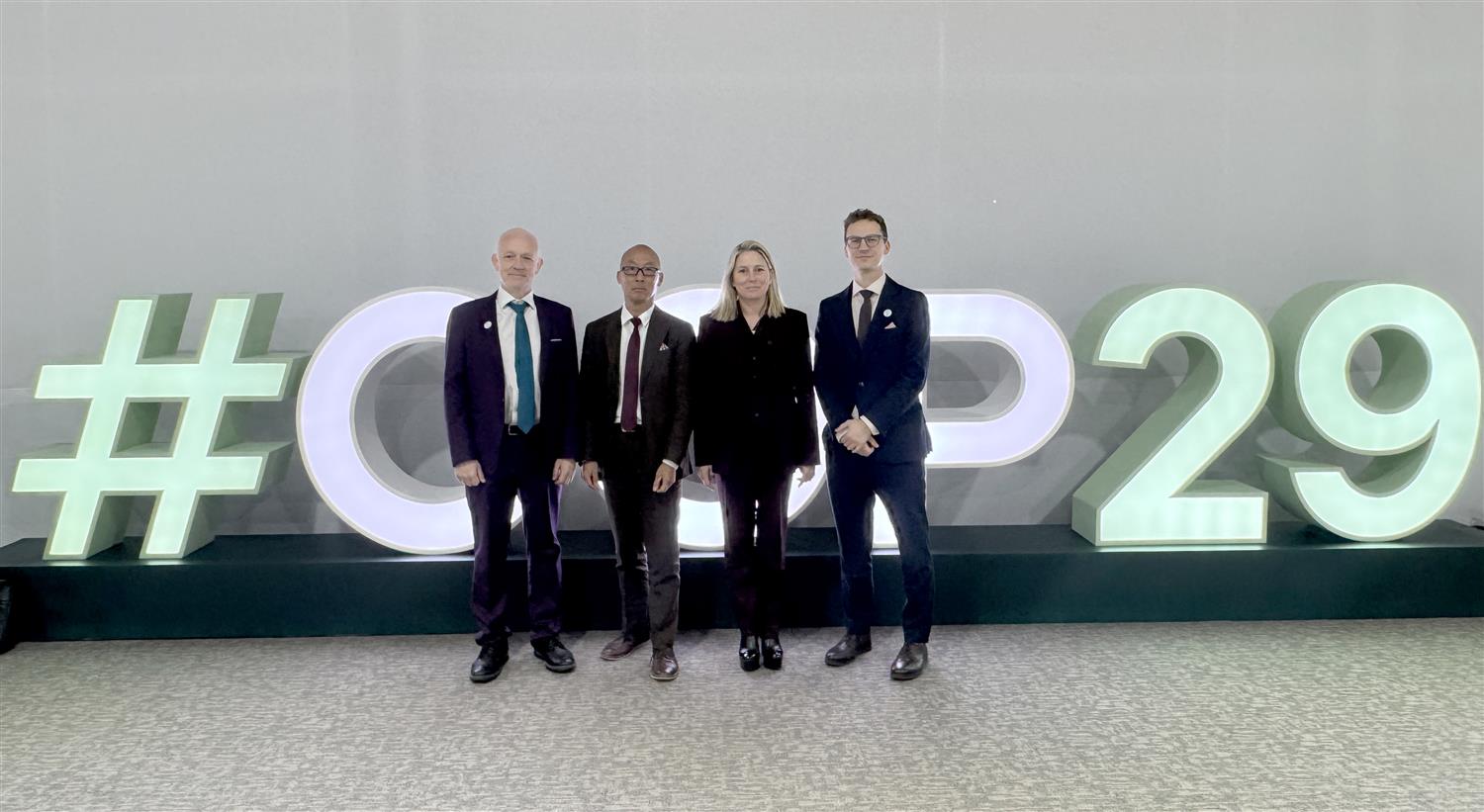More global support for nuclear at COP as six new countries sign up to the tripling pledge
Nuclear energy has had another successful and high-profile COP. Six more countries have signed the historic Declaration to Triple Nuclear Energy, bringing the total number of countries endorsing the declaration to 31.
Opening the event to announce the new signatories, organized in collaboration with the COP Presidency, the IAEA, the US Government and World Nuclear Association, Dr. Sama Bilbao y León, representing the global nuclear industry, said:
"We warmly welcome these six new countries to the Coalition of the Ambitious. Today's announcement highlights the essential role of nuclear energy in meeting the Paris Agreement goals in a cost-effective and equitable manner. Leadership requires a clear-eyed assessment of the here and now, but also the foresight to prepare for what the world will need not only in 2050, but in the decades after. The signatories to this declaration are making a long-term commitment. But it is a long-term commitment with a long term pay off, providing energy certainty and reliability in an uncertain world.” Highlighting the countries, industries and companies supporting the aspiration to triple global nuclear capacity by 2050, Sama continued:
“Nuclear can now count on the world’s biggest banks to back the growth of the nuclear industry. Nuclear has attracted the interest and investment of the world’s largest and most advanced technology companies. And nuclear has ever-increasing support from the public, who recognize that in nuclear they have an answer to their demands for energy security, reliable supply and prices, and a response to climate change. This is truly a global coalition of the ambitious. And thank you all for being part of it.”
Connecting policy and industry experts at the Net Zero Nuclear hub
The Net Zero Nuclear Pavilion is the hub for conversations about nuclear energy’s essential role in achieving carbon neutrality. Throughout week 1 of COP29, World Nuclear Association has brought together key partners at events at the Pavilion, and spoken at numerous events in the Blue and Green Zones. Here are some of the highlights:
Alongside Clean Air Task Force, EFI Foundation and the Nuclear Threat Initiative, and the IAEA, at a session on Enabling the Future Financing SMRs for the Energy Transition, Sama argued that we need to accelerate the development of SMRs – a challenge that required ingenuity from policy-makers, financial leaders and the nuclear industry.
Sama moderated a joint event held with Clean Air Task Force on Unlocking nuclear’s potential as a key enabler of sustainable transition, with Adam Elman, Sustainability Director, Google; Diane Cameron, Head of the Nuclear Technology Development and Economics Division, Nuclear Energy Agency; and Malwina Qvist, Director, Nuclear Energy Program.
The event examined the crucial role of nuclear energy in ensuring stable electricity supplies. Sama wrapped up the session saying:
“We need a mindset change, what would we do differently if this was an emergency..? Well, this is an emergency, so we need to start implementing all the policies we are discussing”.
At another event hosted at the Pavilion, the Association brought together Jeff Olson, Vice President of Business Development, Kairos Power; Caroline Bono, Senior Researcher and Project Lead, EDF; and Julian Blamey, UKI Nuclear Lead, Managing Director, Accenture, to talk about nuclear’s applications for intensive users of energy. During the panel, Jeff Olson discussed the options for powering data centres,
“24/7 is required, and carbon free is typically mandated, so when you look at a resource that can provide both and compliment what renewables have already done, I think you’ve got a good fit with the ability of nuclear to scale when you look at the size of data centres today.”
Sama joined a high-level panel at the UK Pavilion about the industrial applications of advanced nuclear technology, with Lee Mcdonough, UK Department for Energy Security and Net Zero; and Mike Goff, Acting Assistant Secretary and Deputy Principal Assistant Secretary, Office for Nuclear, US Department of Energy.
Meanwhile, King Lee, our Head of Policy and Industry Engagement, joined a panel discussion on Nuclear Energy, a Sustainable Source of Low Carbon Energy for the Arctic. For a deeper dive, you can check out some of the one to one interviews with visitors to the Net Zero Nuclear hub, including with Amb. Bonnie Jenkins, US Under Secretary for Arms Control and International Security, and Tatiana Molcean, Executive Secretary, the United Nations Economic Commission for Europe. You can also read more in Sama’s interview with the New York Times, in which she talks about the positive dynamic for nuclear at COP29 and her hope that the World Bank will change its policies on nuclear.
Representing the nuclear industry’s interests
Throughout COP, the Association is meeting with negotiators and delegates to influence the debate on future climate finance. We are also connecting policymakers with key figures from the nuclear, financial and tech sectors. We are also arguing that the World Bank and other multilateral lending institutions must change their policies to include nuclear projects.
We are using Net Zero Nuclear to build on the momentum generated at COP28, and make the case that the most cost-effective, equitable and effective route to net zero must include more nuclear. The increasingly positive and visible presence of nuclear within the negotiations has been reflected in the number of visitors to the Net Zero Nuclear pavilion.
Dr Jonathan Cobb, one of our team in Baku commented,
“While some thought COP29 might be a relatively quiet conference, it has been incredibly busy. We’ve had many people coming to our pavilion with all sorts of questions about nuclear energy and the goals of Net Zero Nuclear.”
Our programme of Net Zero Nuclear activity is only possible with financial support from strategic partners. If you would like to support Net Zero Nuclear activity next year please contact us.





